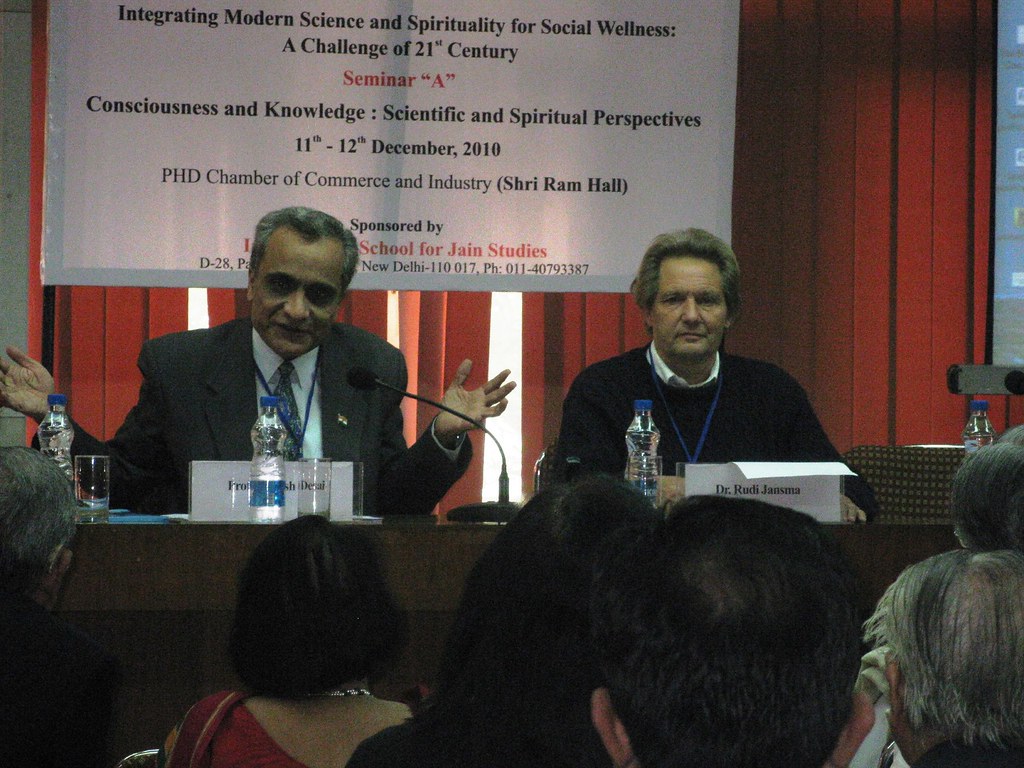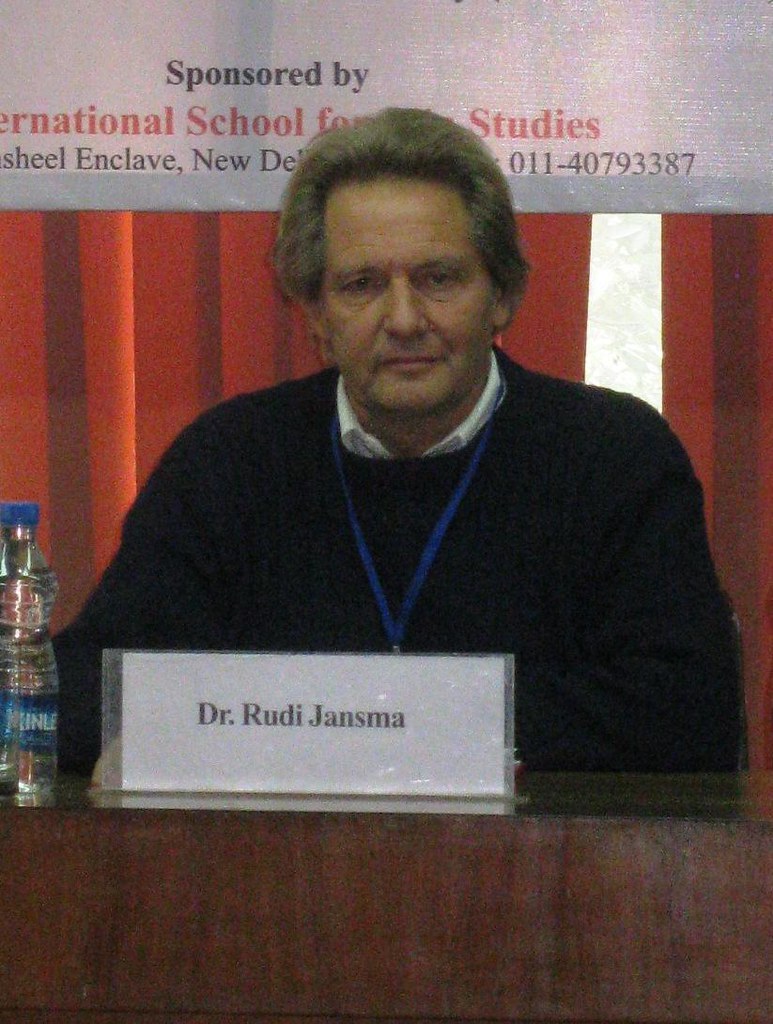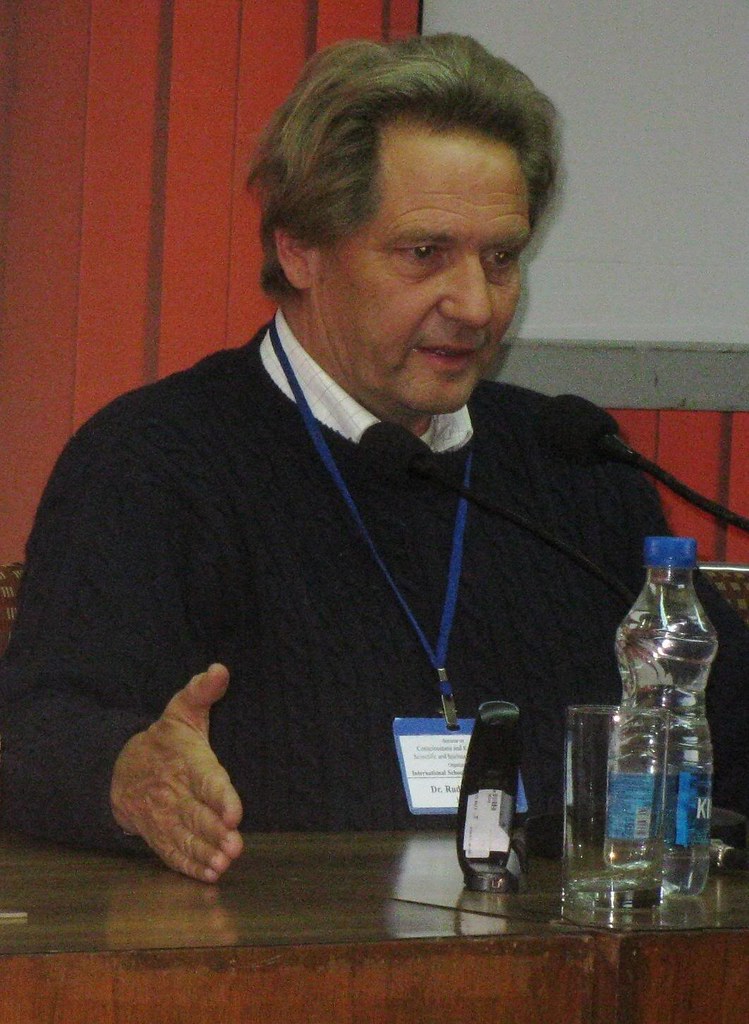ISJS
Series of 3 seminars on
Integrating Modern Science and Spirituality for Social Wellness:
A Challenge of 21st Century
Seminar "A"
Consciousness and Knowledge: Scientific and Spiritual Perspectives
Delhi
Saturday, December 11, 2010
Session I: 12.30-13.15
Abstract:
Evolution of Consciousness in Past and Future
In the last few centuries in the western world has grown the idea that there is no philosophical necessity for the existence of God or gods, or worlds of a higher and more subtle nature than the physical world. The physical world is the one we can perceive with our physical sense-organs, and by means of our logical mind we can build scientific theories in an inductive way - and such theories are regarded as the only reliable explanations which help us in our search for Truth. It is widely believed that there is no Truth outside physical existence, The French-Dutch philosopher René Descartes was instrumental in limiting the existence of soul to the human being and rejecting it for animals and other beings. He also limited consciousness to the thinking faculty of the human mind, because he identified existence with the perceived fact that he could think - thus excluding consciousness from the totality of nature except as a fact in the human mind. Step by step the dominating western scientific and philosophical attitude became one of rejecting spirituality.
We should notice that the development of this particular culture which now dominates most of the world in the midst of which we live in our centuries, is only a very minute moment in the totality of human culture and the evolution of human thought. Even though we ourselves are almost swallowed by it, we should rise ourselves above the limits of our particular culture, and try to reach to more universal views - which stand upright throughout all the movements of time and appearing and disappearing cultures.
If we turn ourselves to the great teachers of humankind, whether Buddhas or Tīrthaṅkaras, Ṛṣis or Manus or many other terms which apply in other parts of the world - in short, all those who are ahead of general humankind due to their inner and spiritual search for Truth, we find that they have reached deep conclusions and knowledge concerning consciousness and evolution, the purpose of existence, the role of Soul in evolution, and the direction in which the evolution of consciousness will follow in the innumerable millions of years we have before us.
In this short introductory paper I can only mention that almost all came to the view that Consciousness is universal, and that Desire, Mind, and Will existed even before the repeated creations which took place time and time again within the eternal cosmos. These points I will elaborate in my lecture.
It is also an ever more apparent fact that within the world of scientists and philosophers we see more and more people who intuit that there is more than physical matter alone.
If we study the ancient and old wisdom scriptures of many cultures we find that in, for example, the Viṣṇu Purāṇa, in Theosophical literature and in Jain scriptures - indeed even in the few scriptures which are left to us from the pre-Columbian Native Americans, evolution of consciousness, the development of the kingdoms of nature into their innumerable forms and the purpose and future of consciousness have been described in ways which would make Charles Darwin very humble, were he able to take notice of such ideas.
We learn from the ancient thinkers that our physical matter is but one phase or type of matter; that physical matter is indeed the coarsest precipitation of all phases of matter which can exist in our universe. And they teach that the jīva of monad, or each jīva/monad - to be conscious and aware and have experience in each phase, and in every combination. To this purpose nature developed 4 or 5 or 7 “elements” in which we as jīvas will live and have our consciousness. Apart from our world in which physical matter is dominant, and in which personal desire (egotism) and mind are the driving forces, there are worlds in which other elements dominate. Ultimately the most pure, subtle and spiritual aspects of our being will absorb the experiences of our jīvas and we will know the universe in its entirety and in all its aspects - then we will have reached all that humans can reach. What we have gained then is the solution to the Grand Question which is inherent in all of us. It is the question for which the in beginning of our Great Cycle or kalpa or day of Brahmā as it is called, the desire to manifest arose: “Who am I?” It is the ātmavidyā, or the self-conscious knowledge of who we really are. We started from the unself-conscious omniscience (otherwise called avidyā) of our jīva or monad, and will end - at least for the time being - our pilgrimage of billions of years with self-conscious omniscience.
Science is the art of perceiving and combining. Present-day science with its refined technology delivers tremendous amounts of facts about our physical micro- as well as macro-universe and some of its energies - from subatomic particles up to enormous clusters of galaxies. In the fields of biology and neuroscience for example, research brings facts to the surface which harmonize better with the ancient wisdom than with the limited occidental models. In my lecture I will give a few examples. Science is there to fill in with minute details the Truths which were already recognized by the ancients. Thus humanity learns to know the intricacies of all the elements of Nature in which we live, are consciousness and have our being.
The first part of the lecture will investigate the question what of what consciousness actually is, then how it unfolds, and how the Ego peregrinates through the beforehand unfolded layers of prakṛti (i.e. Nature in the wider sense of its meaning) and what is the purpose and future of the evolution of consciousness and of life-forms. This part of the lecture will be of an esoteric character.
Then it will be discussed where the ancient and universal on the one hand, and the modern and narrow views can interact and help each other to reach unity, and to stimulate the evolution of thought for the coming centuries in a desirable direction.
Last but not least - I would rather say the first importance is Ethics. How can such studies as we do soften or prevent unneeded suffering now and in the future, and how can we add ideas to the world which will enable humanity, and each individual human being, so that he can proceed the pilgrimage of the Soul with more confidence and in a happy way?
I greatly praise such effort as initiated by the organizers of these meetings, and pronounce the hope that meetings like these in future will go far beyond the borders of India, and that the spirit of it will soon reach the hearts and minds of all men and women.
Photos



 Dr. Rudi Jansma
Dr. Rudi Jansma